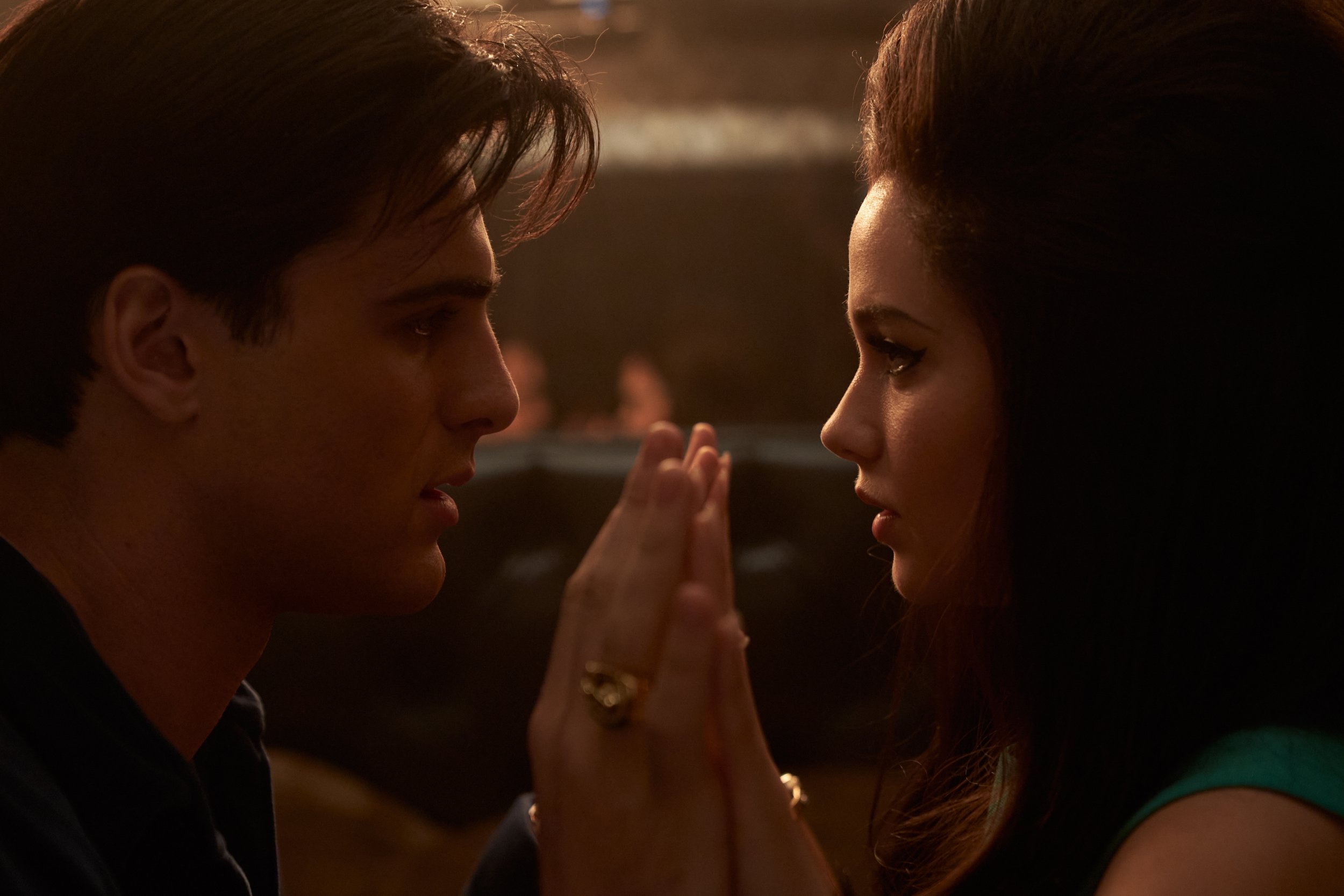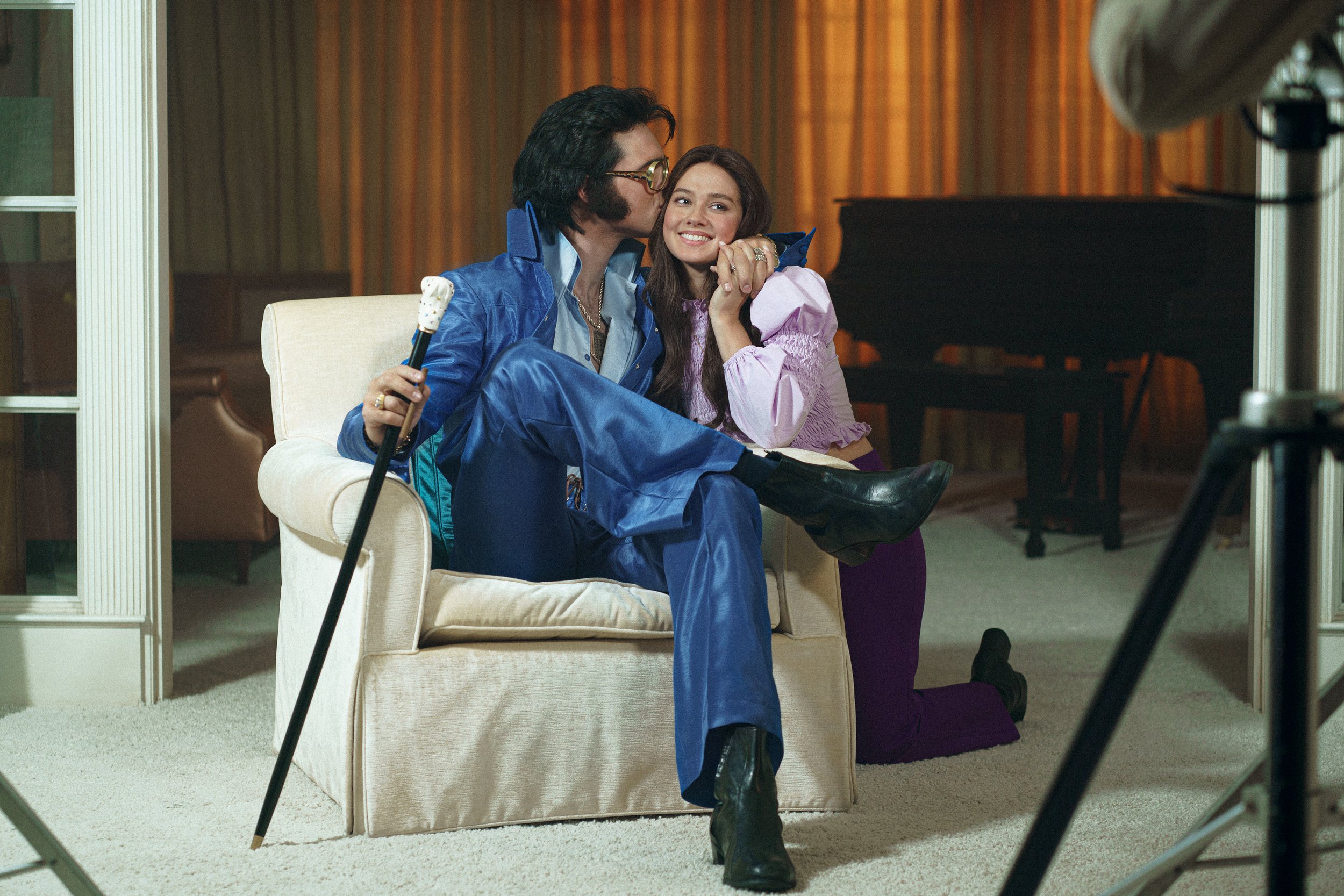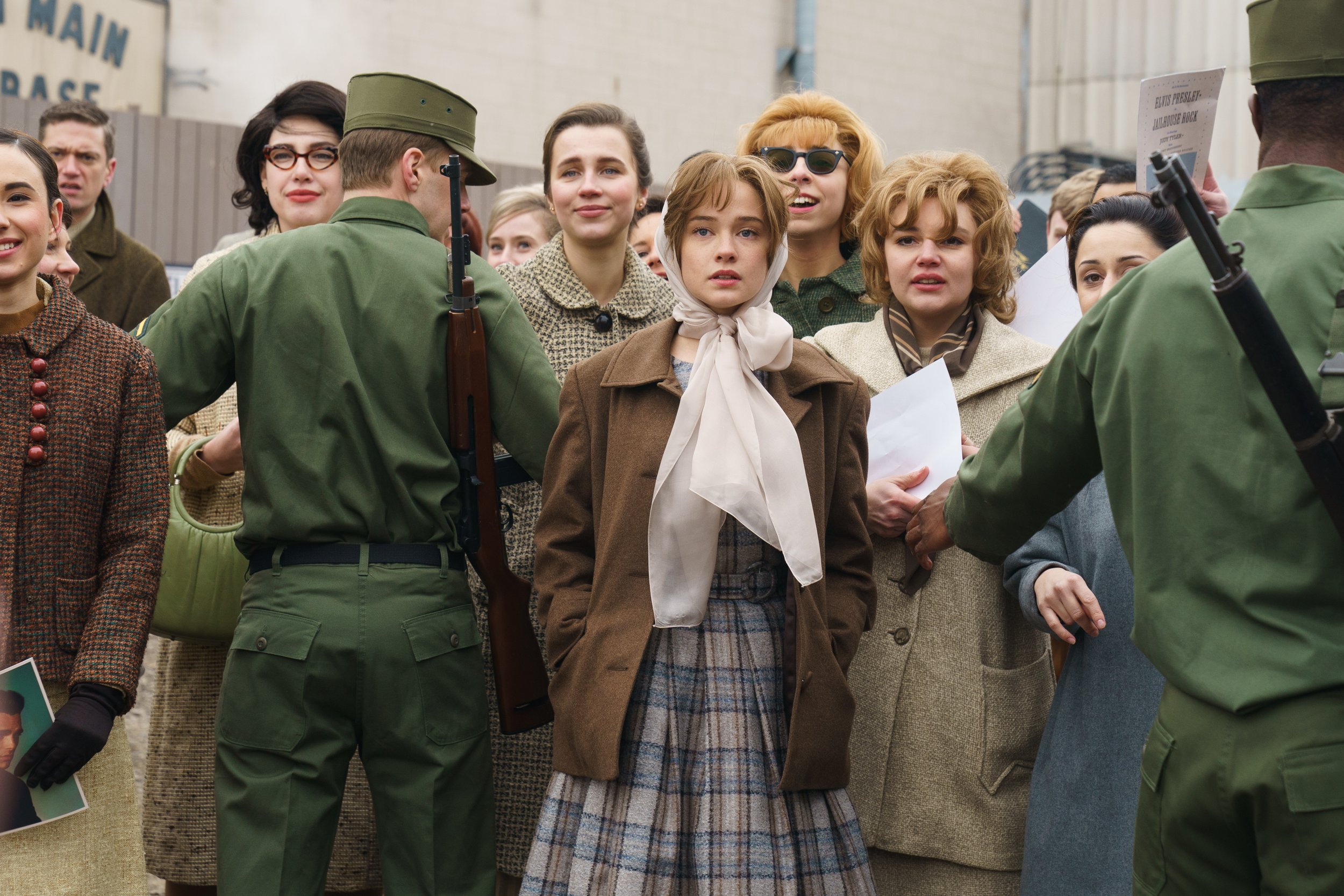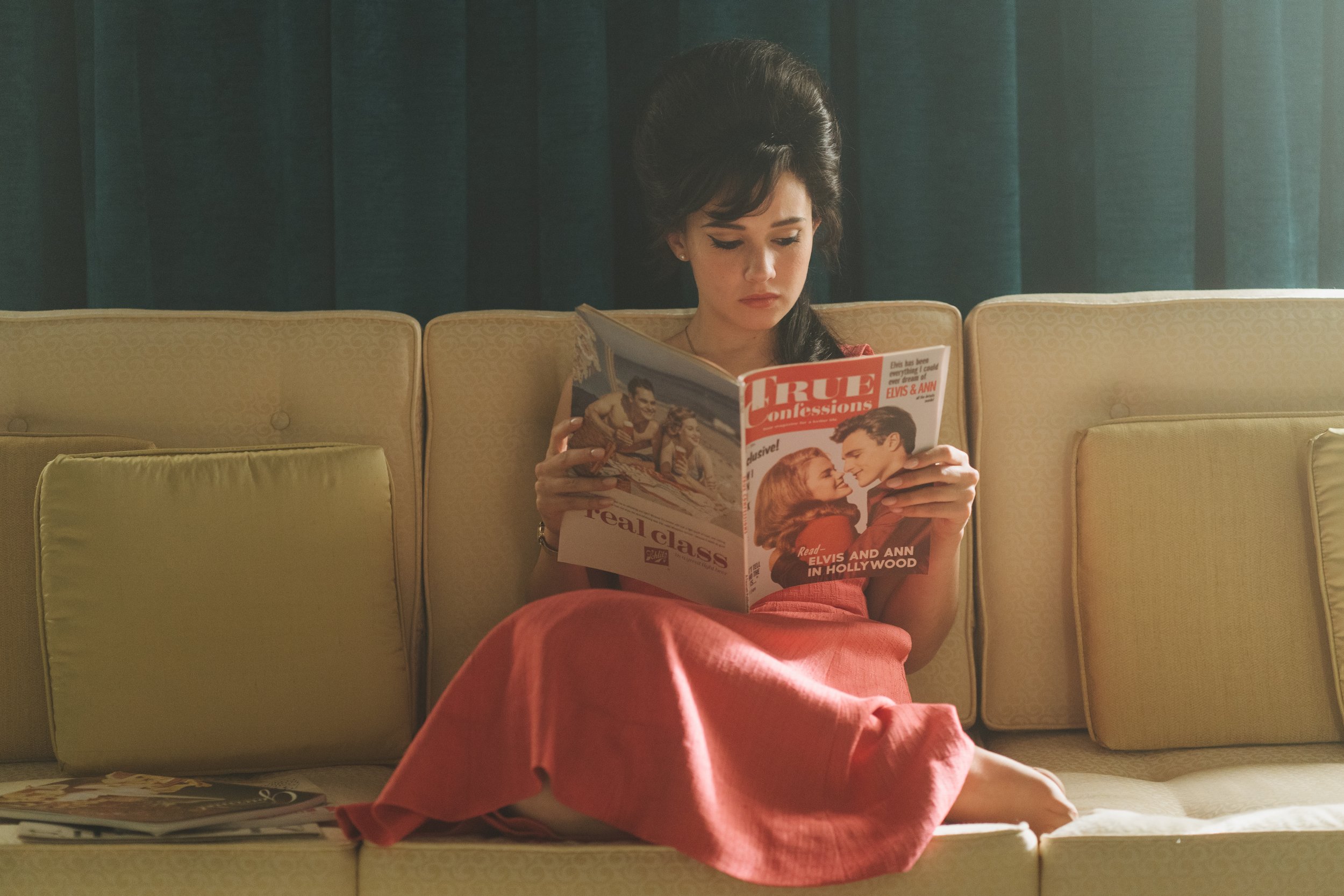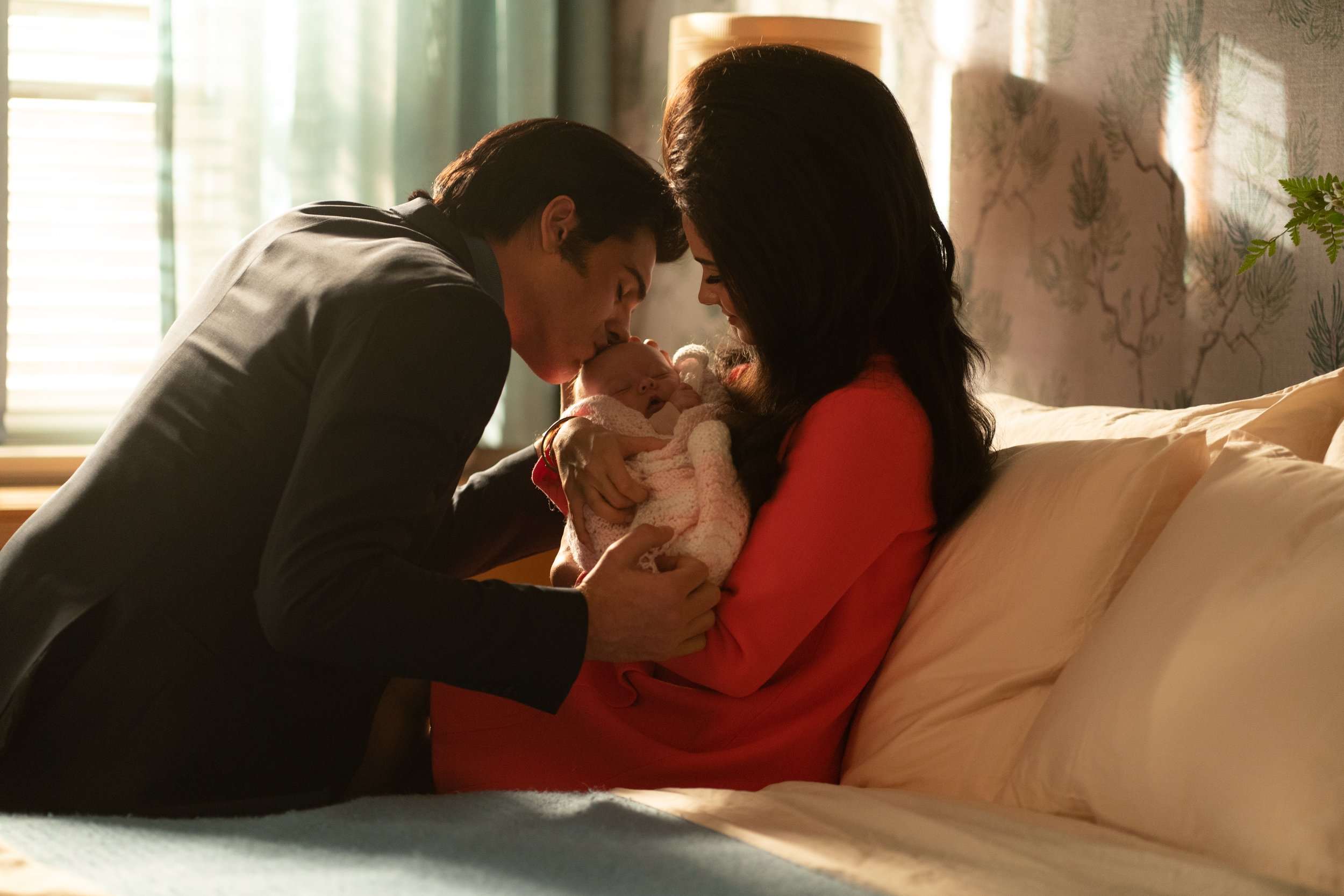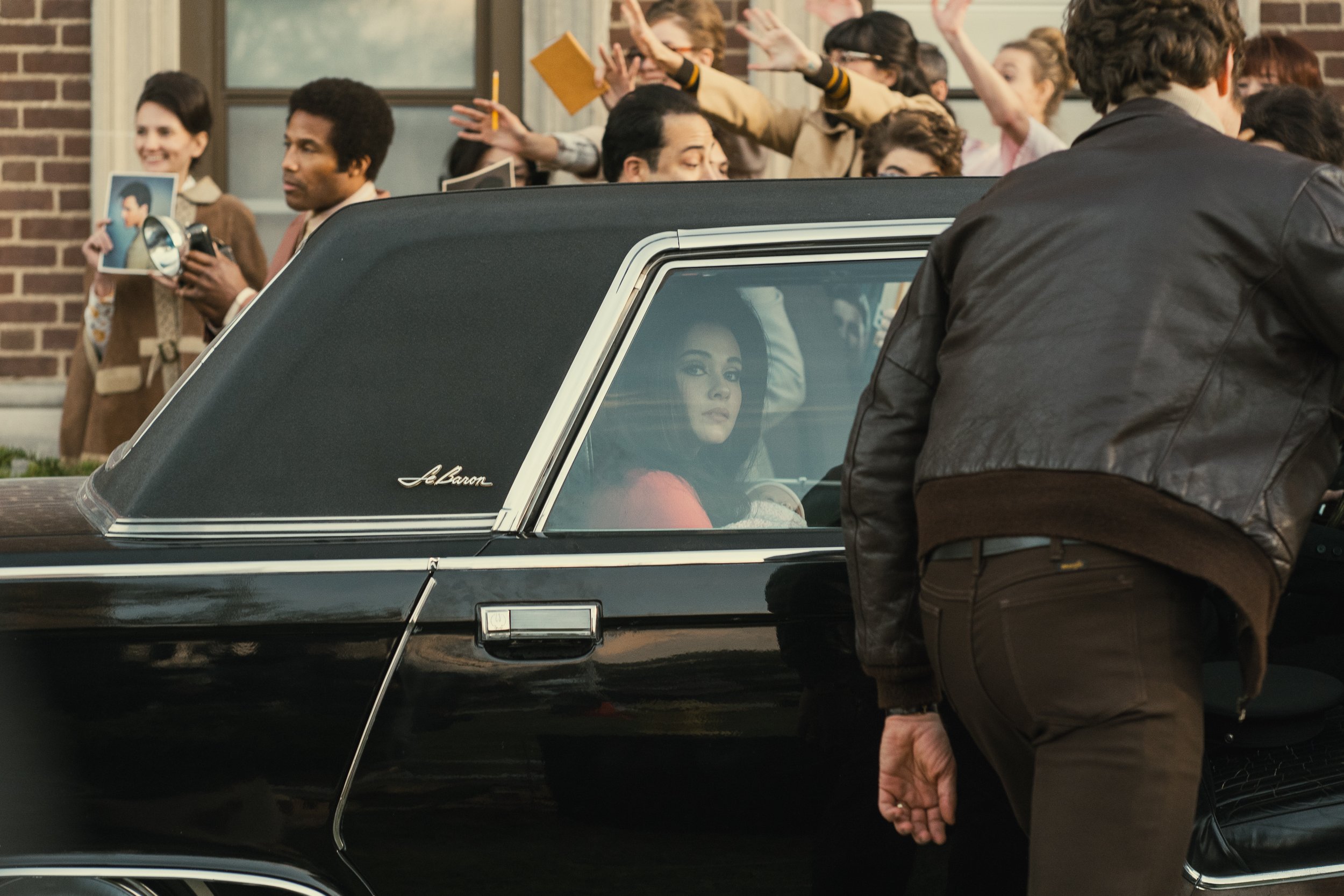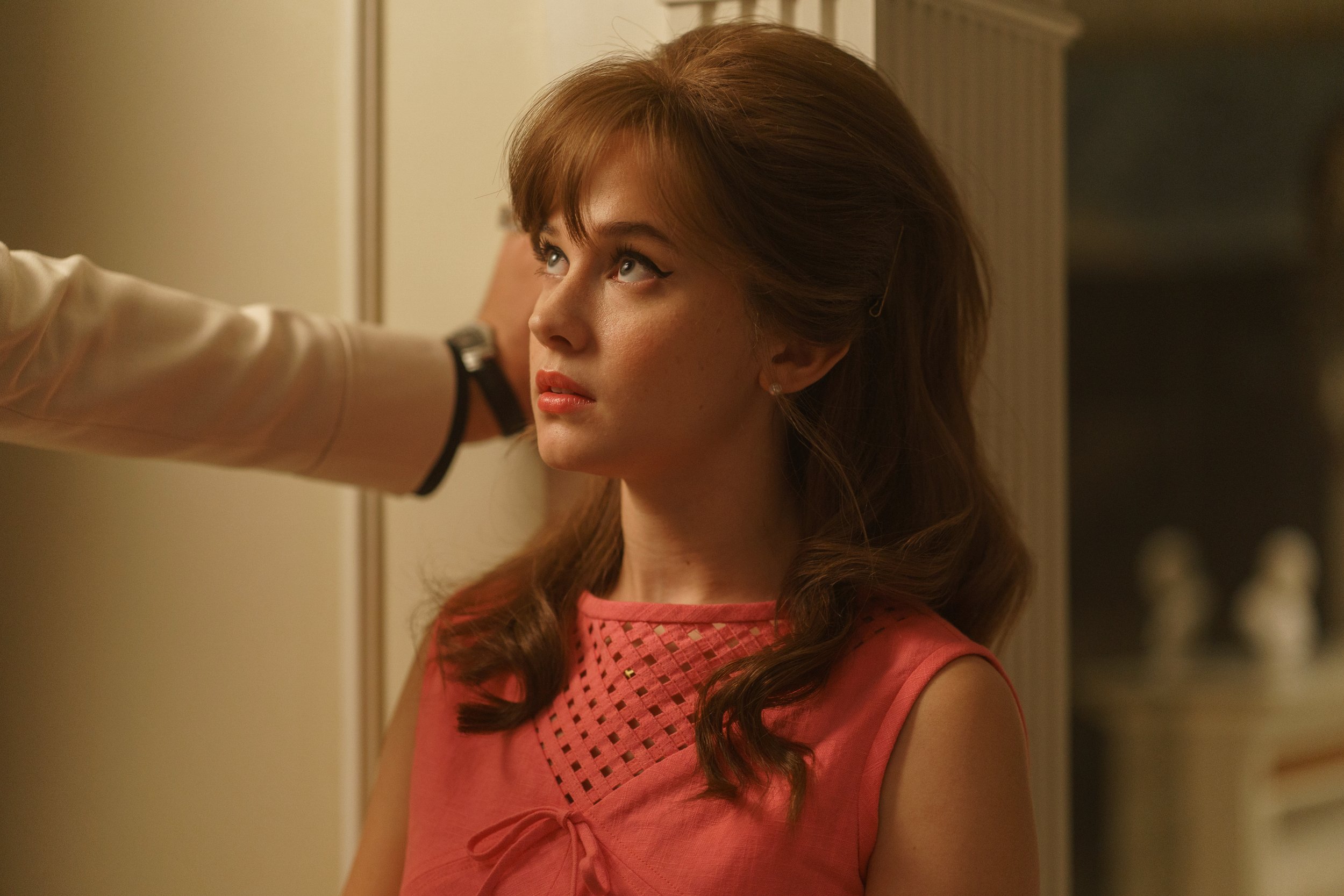MOVIE REVIEW: Priscilla
PRISCILLA– 3 STARS
Even before last year’s loud and messy opus Elvis, the Presley name carried weight wherever it was evoked or used. A sheen of notoriety and spectacle varnishes anything that surname touches to this day, including his surviving wife Priscilla and late daughter Lisa-Marie. Whether they wanted to or not, they have carried a legacy’s torch for nearly 50 years now. They too deserve lionization. Entering the 2023 awards season, celebrated Lost in Translation filmmaker Sofia Coppola has adapted Priscilla Presley’s evocative 1985 memoir Elvis and Me into Priscilla.
Matching the legend status branding and first-name-only titling of Baz Luhrmann, Coppola’s aim was to present the little-known side of the Presley story that happened under domestic lamplights instead of the flashbulbs of the public eye. The writer-director had to do so with a certain degree of difficulty similar to Ava DuVernay’s challenge on Selma nine years ago where the estate of Rev. Dr. Martin Luther King, Jr. had granted licenses for King’s speeches to another studio and film project. Thanks to approval given to Luhrmann already, no Elvis Presley music is used in Priscilla.
LESSON #1: PUT THE TRUE CENTRAL CHARACTER FIRST– If you’re asking how someone could possibly tell the story of the wife of Elvis Presley without the music of the icon himself, the answer is very simple. Put the true central character first over the aforementioned notoriety and spectacle. Those two auras belonged to him more than her. This is Priscilla’s story to tell. She is the headliner of her own movie, not Elvis and his music. Priscilla shows the sheen of her story, because there’s still plenty of it to be lit, reflected, and dazzled. Within this challenge, Coppola and her film have sumptuously succeeded.
LESSON #2: YOU KNOW, THERE WAS OTHER MUSIC TO LISTEN TO– If, for some reason, it’s still music you worry about to set stages, rest easy. Sofia Coppola had an answer for that too. She enlisted her husband Thomas Mars and his band Phoenix to be the music supervisors of Priscilla and tabbed the innovative sibling act Sons of Raphael to crossover into cinema with their first-ever film score. Mars filled the movie with an often diegetic historical diary of orbiting popular music of the 1950s-1970s era away from The King’s familiar gyrations and stylings. When the radios were off, Sons of Raphael massaged the already numbed senses with flutters of love teetering on loss. The effect works with its own cadence between toe-tapping and internal reflection.
That specially curated soundtrack springs forth in Priscilla as the lyrics of “Venus” by Frankie Avalon back the establishing shots of a United States Air Force Base in Bad Nauheim in West Germany. You hear these lovelorn wishes in Avalon’s song:
“Please send a little girl for me to thrill”
“A girl who wants my kisses and my arms”
“A girl with all the charms of you”
They shrewdly play as the cinematographer Philippe Le Sourd’s camera finds the titular 14-year-old beauty– played by Cailee Spaeny of The Craft: Legacy– that damn near matches the lusty quest of the song. See, this movie is talking to us in more ways than one, and it didn’t need Elvis’s music to do it. It’s almost as if, GASP, he wasn’t singing those songs for his wife, but let’s not get ahead of ourselves.
Much to the initial chagrin of her military parents Paul and Ann (Ari Cohen of It and Succession cast member Dagmara Domińczyk), Priscilla Beaulieu met the most popular member of the U.S. Air Force (played by Jacob Elordi of Euphoria) at a party in 1959. He was ten years her senior and, yes, that’s treated as the precarious moral hurdle it was then and still is 64 years later. Though their time together in Germany was chaste and short, they stayed in touch and didn’t see each other again in person for three years.
LESSON #3: KEEP THE HOMEFIRES BURNING– After bringing Priscilla back stateside for a glamorous visit into Graceland and his celebrity world of partying with the Memphis Mafia, Elvis sought and was granted the permission to have her return permanently to finish her schooling with the promise of marriage eventually after graduation. While Elvis avoided the next steps of intimacy and hopped out to Hollywood to make movies, the expectations of Priscilla were to be the trophy on the shelf that kept the homefires burning.
LESSON #4: A GIRL’S GOT NEEDS– However, by this point north of turning 18, Priscilla had passionate urges, advances, and needs of her own that were not being fully met by the awkward rockstar. Meanwhile, the tabloids of the day were quick to report the contrary with Elvis’s suspected torrid movie set affairs with the likes of Nancy Sinatra and Ann-Margaret. To hear Elordi’s Elvis say it, he required “a woman who understands these things will happen.” The jealousy stemming from those antics alone of her departed beau became hotter than any Graceland fireplace waiting for the king of the castle to come home.
Watching Priscilla present the couple’s puppy love developing into lavish fondness and shared spirals of spoils is a dreamy movie experience. The fog of love was made even more gorgeous by impeccable period fashions from Coppola’s long-time costume designer Stacey Battat (The Beguiled) and the lushly gaudy interiors recreated by Nightmare Alley Oscar-nominated production designer Tamara Deverell that pull from history and recreate magazine spreads. You can practically smell the hairspray and sink into the satin and shag textures of their award-worthy artistic efforts.
Priscilla spends the bulk of its under-two-hour running time on this hot-and-cold expanse of their fairy tale love story between their introduction and their 1967 wedding, eight years after first meeting overseas. Fold in the arriving influences of wealth, gossip, drugs, and guns, and the romantic surrealness rises even further. This chosen wavelength allowed Spaeny and Elordi to do everything they could to fall into each other’s passion (without removing their clothes). During this beginning arc, they are a fetching couple with Elordi’s smoky eyes, towering height, and imitated vocal warble. With Saltburn also arriving for The Kissing Booth actor, this is easily his best ever work.
Naturally, Priscilla belongs to the queen and not The King. The striking fresh face of Cailee Spaeny will be the unforgettable feature of this film. The 25-year-old carries nearly every frame of this picture and was able to convey the multitude of moods and emotions that filled and spanned years of a roller coaster relationship. Behind her willowy disposition, Spaeny still found the strong woman underneath who weathered abuse and eventually found the courage to leave on her own volition, complete with Dolly Parton’s original rendition of “I Will Always Love You” fittingly driving her away on the car radio.
Quite favorable to the title character (and one of the film’s front-and-center executive producers), there is a softness to the atmosphere and severity of Coppola’s drama. Priscilla could have very easily hammered one nail of trauma after another as a damning– and possibly deserved– crucifixion of idols and reputations. However, the third act leaps abruptly from marriage and motherhood to separation and divorce during the troubling Vegas years in a five-year descent that deserved more than 15 minutes of freefall Priscilla fleshed out. Many of the darker memories, forbidden affairs, and seedier details that populate a great deal of the Elvis and Me source book are omitted entirely or massaged over in Coppola’s screenplay. Priscilla is likely not trying to make apologies, sugarcoat, protect, sanitize, or hide the sordid truth from the matriarch’s own memoir, but maybe, just maybe, it was too soft. That likely falls on Sofia more than Priscilla herself.
LOGO DESIGNED BY MEENTS ILLUSTRATED (#1151)


